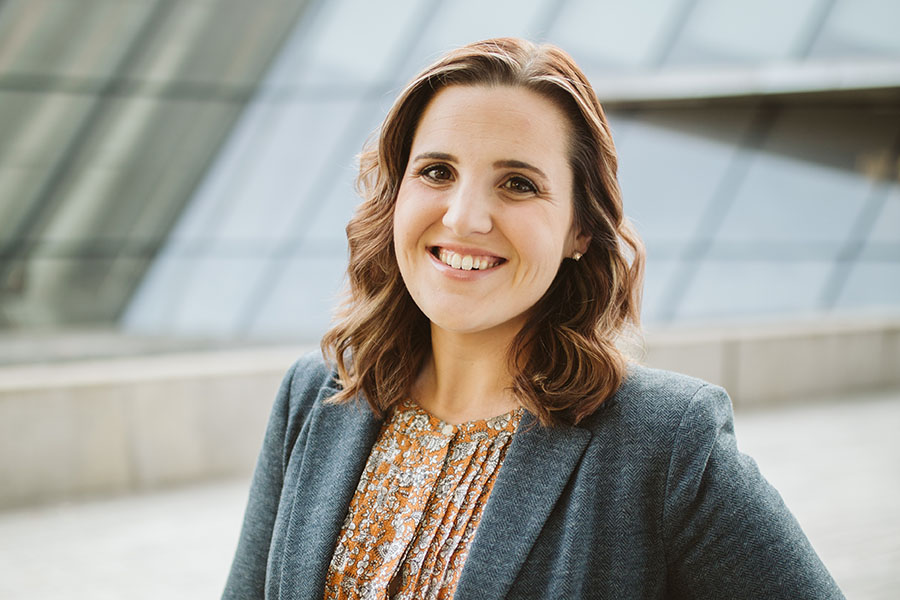Knox Stories
Repertory Theatre Term Performs 20th Season
The 2025 season marked the 20th Repertory Theatre Term season at Knox College
Venture Boldly

Office of Communications
2 East South Street
Galesburg, IL 61401


Knox College Digital Humanities Postdoctoral Fellow Jennifer Andrella is joining a team of scholars and educators to document and preserve the endangered Umóⁿhoⁿ (Omaha) language in collaboration with the Umóⁿhoⁿ Nation Public School. The project was recently awarded a National Endowment for the Humanities (NEH) grant totaling $448,551, which will cover travel, labor, equipment, and compensation for the Umóⁿhoⁿ language speakers involved.
Andrella joined Knox in 2022 as a core part of the Abolition for All Time Lab. Andrella's research as a historian focuses on nineteenth-century United States and Native American history. As a Digital Humanities scholar, she is interested in digital cultural heritage and issues of data sovereignty.
The project, titled Collaborative Research: Documenting Connected Speech in an Endangered Language, will be supported from 2025 to 2027. With only 27 fluent speakers of Umóⁿhoⁿ remaining in the community, the language is at risk of extinction, making this work crucial to its preservation.
“It’s a daunting task, but it’s an important one,” Andrella said. “And it’s an incredible opportunity to work with the Omaha community and create a platform that is truly community-centered in its approach towards language preservation and access.”
The project is a collaboration with the Umóⁿhoⁿ Nation Public School in Nebraska and includes researchers from Yale University, Grinnell College, and other institutions. The two principal investigators leading the effort are Edwin Ko from Yale University and Albert Lacson from Grinnell College, with Andrella serving as the digital consultant. Her role involves creating a digital archive and an online dictionary for the Umóⁿhoⁿ language, preserving oral histories and educational materials collected by the Umóⁿhoⁿ Nation’s language educators over decades.
The initiative has two main components—first, recording oral histories and narratives from the remaining speakers and, second, building an accessible digital archive and dictionary to ensure that the language remains available to future researchers and learners. The grant will allow her and her colleagues to begin work in the summer of 2025, starting with organizing existing materials and laying the groundwork for the digital repository.
The project also aims to model an ethical approach to language and cultural documentation, a departure from historically extractive practices in such work. The team is committed to creating a sustainable foundation for ongoing language preservation efforts.
Published on October 15, 2024
-Mitch Prentice ’17, Office of Communications Lead Writer/Editor